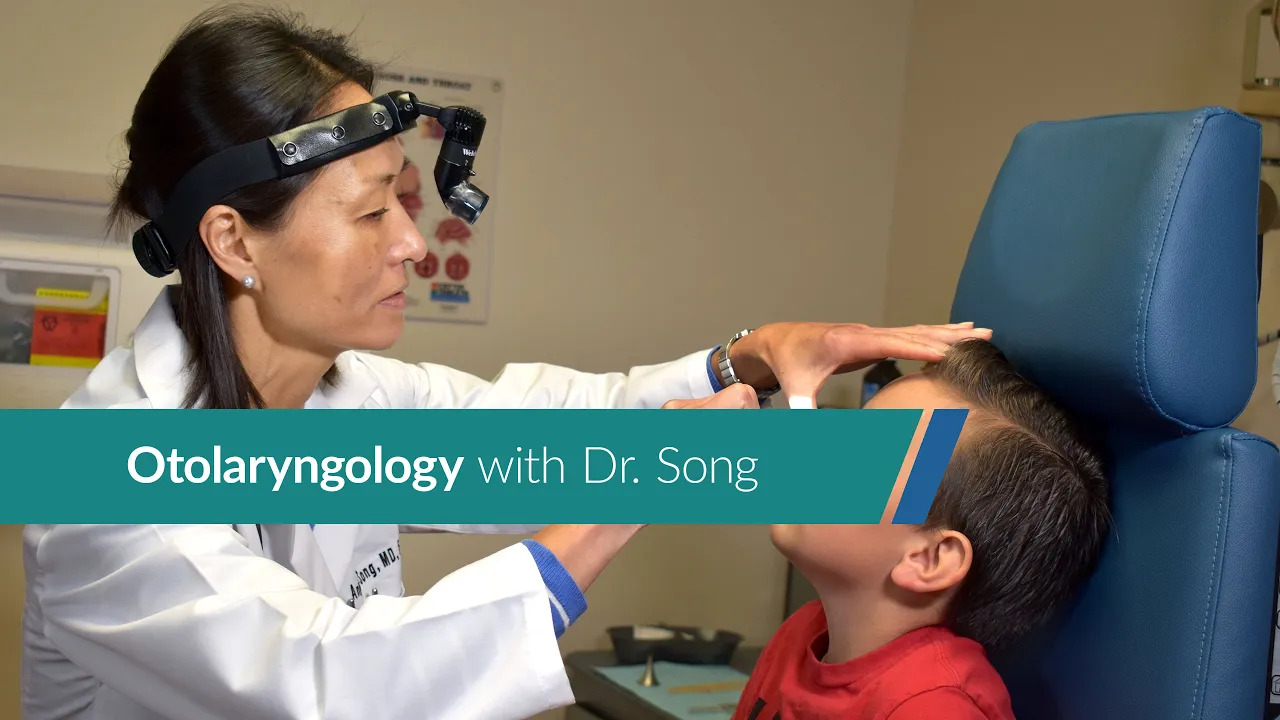The Importance of a Hearing Test with a Certified Hearing Clinic
The Importance of a Hearing Test with a Certified Hearing Clinic
Blog Article
Exploring the Area of Otolaryngology: What to Anticipate When You Get In Touch With an ENT
Otolaryngology, generally described as ENT, incorporates the medical diagnosis and treatment of ear, nose, and throat disorders. For those experiencing related concerns, consulting an ENT expert can supply clearness and relief. Understanding what to anticipate throughout such assessments is essential for reliable communication and treatment. This introduction will outline essential aspects of the ENT experience, consisting of common factors for visits and the procedures entailed in diagnosis and treatment.

Understanding Otolaryngology: A Summary
Otolaryngology, typically described as ENT (Nose, ear, and throat) medication, is a specific branch of medicine that concentrates on the medical diagnosis and therapy of problems influencing these important locations of the human body. This area incorporates a variety of conditions, including those pertaining to hearing, equilibrium, breathing function, and speech. Otolaryngologists are trained to handle both clinical and medical therapies, using sophisticated strategies and innovations. Their expertise expands past typical conditions, resolving problems such as allergic reactions, sinus infections, and hearing loss. Furthermore, they play an essential function in the monitoring of head and neck cancers, providing thorough care tailored to specific person requirements. In general, otolaryngology remains important for keeping health and top quality of life in afflicted people.
Typical Reasons to See an ENT Expert
Lots of people look for the knowledge of an ENT expert for a range of factors, showing the diverse nature of problems that affect the throat, ear, and nose. Common problems include chronic sinusitis, which typically brings about relentless nasal blockage and facial discomfort. Allergies and their associated symptoms, such as sneezing and itching, likewise trigger brows through to these specialists (ENT Doctor). Hearing loss, whether progressive or unexpected, is an additional substantial factor for assessment. In enhancement, people might seek analysis for throat disorders, consisting of consistent hoarseness or ingesting troubles. Sleep apnea, characterized by cut off breathing throughout rest, is frequently dealt with by ENT specialists as well. Each of these problems highlights the value of specialized care in handling intricate ENT-related wellness problems
Preparing for Your ENT Visit
When getting ready for an ENT visit, it is important to gather pertinent info and consider any certain problems. Individuals ought to put together a thorough case history, including previous ear, nose, or throat issues, surgeries, and present medicines. Recording signs-- such as period, frequency, and severity-- can provide useful understandings for the ENT expert. In addition, individuals should prepare a listing of inquiries they wish to ask, making certain that all concerns are addressed during the check out. Bringing along any kind of appropriate clinical records or test outcomes can better assist the ENT in comprehending the person's problem. Finally, people should verify their consultation details, consisting of day, area, and time, to minimize any type of final confusion. Proper preparation can boost the effectiveness of the examination and lead to much better results.
What to Anticipate During the Examination
As the consultation begins, the patient can anticipate to engage in an extensive conversation with the ENT professional concerning their symptoms and medical history. The specialist will ask about the duration, frequency, and severity of symptoms such as hearing loss, nasal congestion, or aching throat. In addition, the individual's previous medical problems, medications, and any relevant household history will be examined, aiding the expert in forming a full understanding of the patient's wellness. The ENT might also ask regarding lifestyle elements, such as direct exposure to toxic irritants or allergens. This open discussion establishes a foundation for the consultation, ensuring that the client's concerns are addressed and establishing the stage for any type of necessary analyses or recommendations for treatment.
Diagnostic Examinations and Treatments in Otolaryngology
An array of diagnostic tests and treatments are essential in otolaryngology to accurately evaluate and diagnose conditions influencing the nose, ear, and throat. Common tests include audiometry, which determines hearing function, and tympanometry, examining center ear pressure. Nasal endoscopy enables visualization of the nasal flows and sinuses, while laryngoscopy takes a look at the throat and singing cables. Imaging techniques, such as CT scans and MRIs, provide comprehensive sights of head and neck structures. Allergy testing might additionally be performed to recognize triggers for sinus or respiratory problems. These analysis devices allow ENT professionals to establish a comprehensive understanding of patients' problems, making certain customized and efficient management strategies. Proper diagnosis is essential for successful therapy results in otolaryngology.
Treatment Options Used by ENT Specialists
ENT experts supply a variety of treatment choices customized to resolve particular conditions impacting the ear, nose, and throat. These therapies vary from conservative methods, such as medication and way of life alterations, to more intrusive procedures. Allergic reactions might be managed with antihistamines or immunotherapy, while chronic sinus problems could need nasal corticosteroids or sinus surgical procedure. For hearing loss, ENT experts commonly suggest hearing aids or surgical treatments like cochlear implants. In cases of throat problems, choices can consist of speech therapy or operations to eliminate blockages. In addition, they might give assistance for taking care of sleep apnea, consisting of making use of CPAP tools or surgical interventions. Overall, the goal is to enhance patients' lifestyle with customized care and effective therapy methods.
When to Seek Follow-Up Care With an ENT
When to seek follow-up care with an ENT professional is crucial for taking care of recurring symptoms or problems associated to throat, nose, and ear conditions, acknowledging. Individuals must take into consideration arranging a follow-up visit if signs and symptoms linger in spite of first treatment, such as chronic ear discomfort, nasal blockage, or throat pain. Adjustments in hearing, balance problems, or unusual nasal discharge may additionally warrant additional examination. In addition, if a patient experiences adverse effects from prescribed drugs or has actually undergone a procedure, follow-up care is necessary to monitor healing and address any type of problems. Timely examinations can ensure efficient administration of conditions, avoid prospective issues, and provide tranquility of mind relating to one's health. Looking for follow-up care advertises positive health and wellness administration in otolaryngology.
Frequently Asked Inquiries

What Qualifications Should I Try to find in an ENT Specialist?
When seeking an ENT expert, one need to look for board accreditation, appropriate experience, and solid patient evaluations. Additionally, efficient communication abilities and a thoughtful approach can considerably improve the overall treatment experience.
How Do I Select the Right ENT for My Demands?
Choosing the best ENT professional involves examining their credentials, experience, and person reviews (Otorrinolaringologia). It is necessary to ponder their communication design and approach to therapy, guaranteeing they align with the individual's particular health needs and choices
Are There Any Kind Of Threats Connected With ENT Procedures?
The threats associated with ENT treatments might consist of infection, blood loss, anesthesia complications, and potential damage to bordering structures. Individuals must go over these dangers with their doctor to recognize specific worries and warranty informed decisions.
Just How Can I Take Care Of Anxiety Prior To My ENT Appointment?
To manage anxiety before an appointment, individuals can exercise deep breathing exercises, visualize favorable results, prepare inquiries beforehand, and look for assistance from pals or family members, promoting a sense of confidence and peace.
What Should I Do if I Experience Negative Effects From Treatment?
If negative effects from treatment take place, the person must promptly report them to their doctor. Adjustments to treatment or additional interventions might be necessary to guarantee security and performance in managing their condition - ENT surgery. As the consultation begins, the person can anticipate to engage in a comprehensive conversation with the ENT specialist concerning their signs and click here symptoms and medical background. These diagnostic devices enable ENT experts to establish a comprehensive understanding of individuals' conditions, ensuring tailored and efficient administration strategies. ENT professionals provide a range of therapy choices customized to deal with details conditions affecting the nose, ear, and throat. When looking for an ENT specialist, one must look for board qualification, pertinent experience, and solid individual reviews. Selecting the ideal ENT specialist involves reviewing their credentials, experience, and person evaluations
Report this page